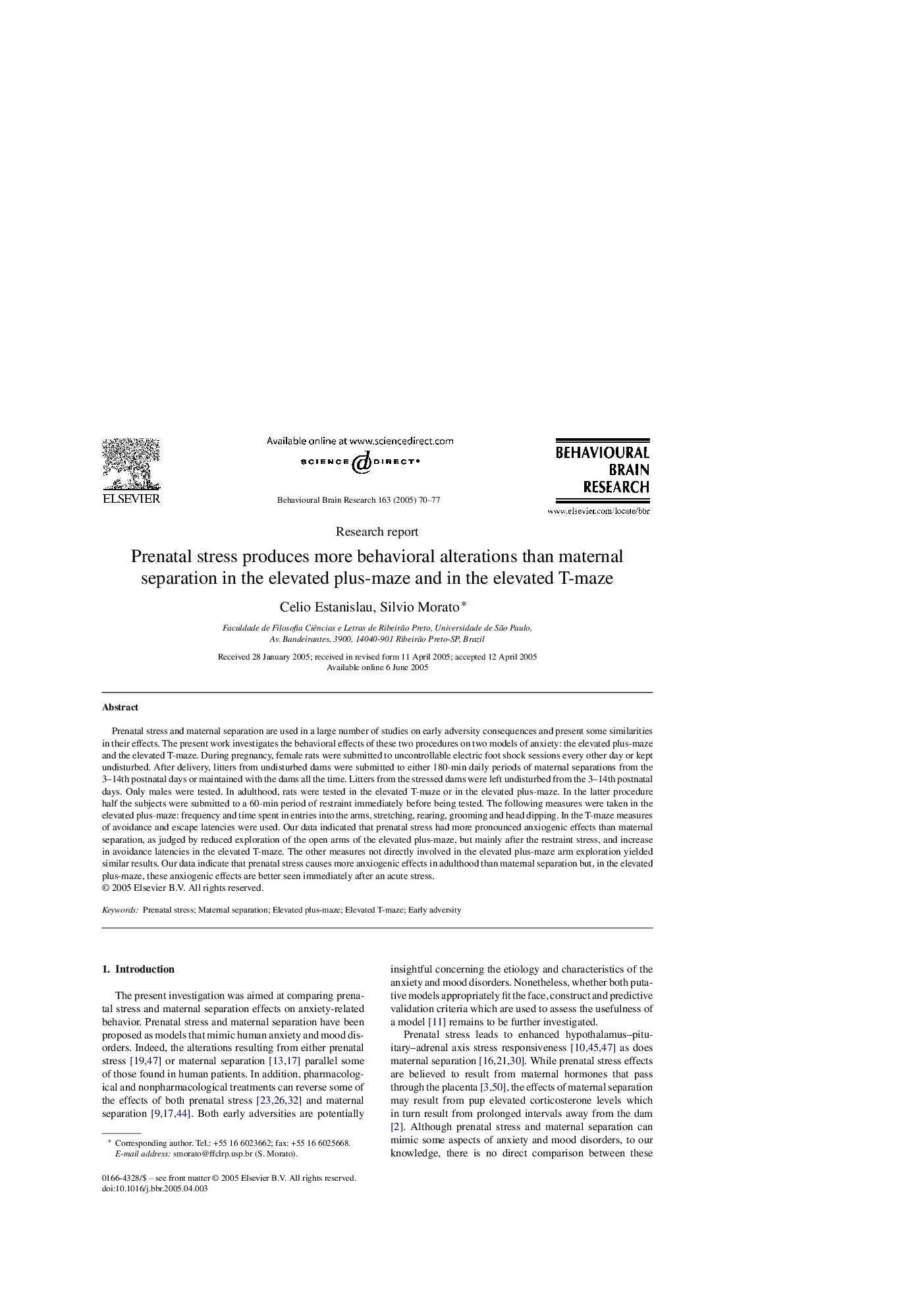| کد مقاله | کد نشریه | سال انتشار | مقاله انگلیسی | نسخه تمام متن |
|---|---|---|---|---|
| 9406509 | 1290126 | 2005 | 8 صفحه PDF | دانلود رایگان |
عنوان انگلیسی مقاله ISI
Prenatal stress produces more behavioral alterations than maternal separation in the elevated plus-maze and in the elevated T-maze
دانلود مقاله + سفارش ترجمه
دانلود مقاله ISI انگلیسی
رایگان برای ایرانیان
کلمات کلیدی
موضوعات مرتبط
علوم زیستی و بیوفناوری
علم عصب شناسی
علوم اعصاب رفتاری
پیش نمایش صفحه اول مقاله

چکیده انگلیسی
Prenatal stress and maternal separation are used in a large number of studies on early adversity consequences and present some similarities in their effects. The present work investigates the behavioral effects of these two procedures on two models of anxiety: the elevated plus-maze and the elevated T-maze. During pregnancy, female rats were submitted to uncontrollable electric foot shock sessions every other day or kept undisturbed. After delivery, litters from undisturbed dams were submitted to either 180-min daily periods of maternal separations from the 3-14th postnatal days or maintained with the dams all the time. Litters from the stressed dams were left undisturbed from the 3-14th postnatal days. Only males were tested. In adulthood, rats were tested in the elevated T-maze or in the elevated plus-maze. In the latter procedure half the subjects were submitted to a 60-min period of restraint immediately before being tested. The following measures were taken in the elevated plus-maze: frequency and time spent in entries into the arms, stretching, rearing, grooming and head dipping. In the T-maze measures of avoidance and escape latencies were used. Our data indicated that prenatal stress had more pronounced anxiogenic effects than maternal separation, as judged by reduced exploration of the open arms of the elevated plus-maze, but mainly after the restraint stress, and increase in avoidance latencies in the elevated T-maze. The other measures not directly involved in the elevated plus-maze arm exploration yielded similar results. Our data indicate that prenatal stress causes more anxiogenic effects in adulthood than maternal separation but, in the elevated plus-maze, these anxiogenic effects are better seen immediately after an acute stress.
ناشر
Database: Elsevier - ScienceDirect (ساینس دایرکت)
Journal: Behavioural Brain Research - Volume 163, Issue 1, 30 August 2005, Pages 70-77
Journal: Behavioural Brain Research - Volume 163, Issue 1, 30 August 2005, Pages 70-77
نویسندگان
Celio Estanislau, Silvio Morato,